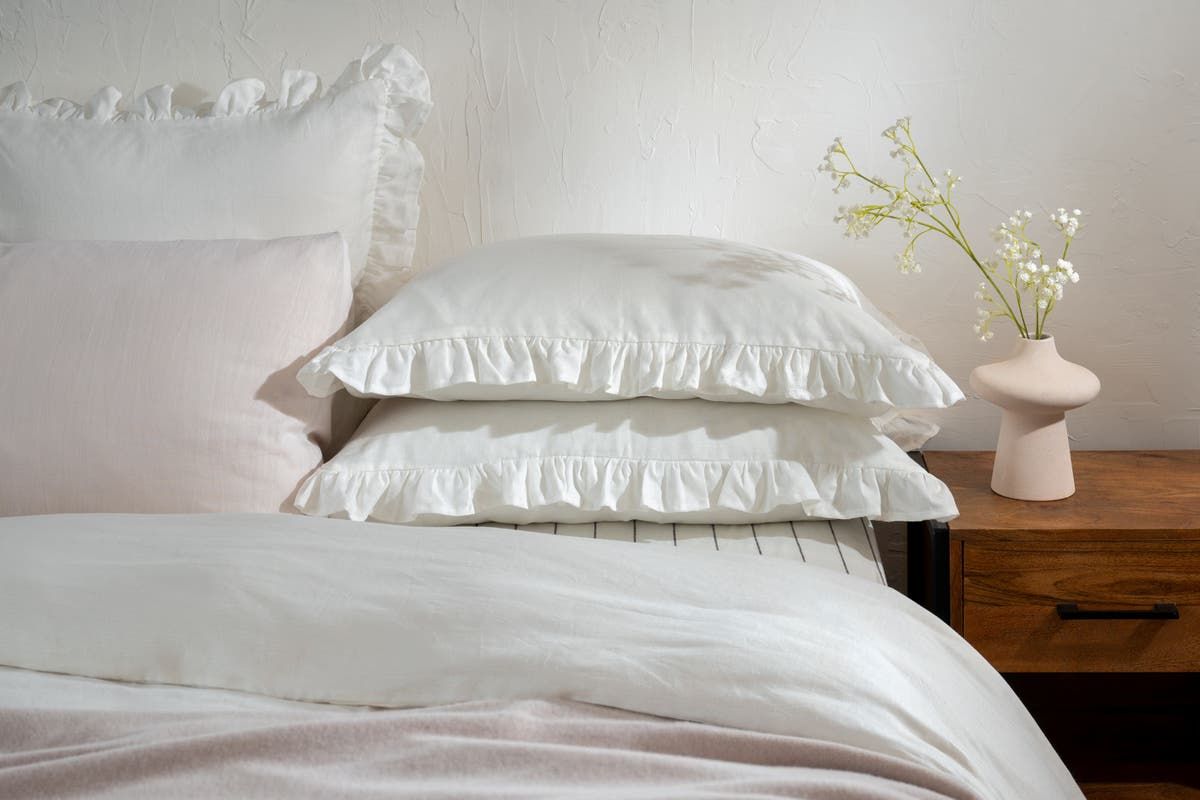Truly support
independent journalism
Our mission is to provide unbiased, fact-based reporting that holds the powerful to account and exposes the truth.
Whether it's $5 or $50, every contribution counts.
Support us in offering journalism without agenda.
Whether your bedroom design is calm and contemporary with clean lines or all about ruffles and flounces, when it comes down to the basics, it's all about your bed and the best sleep possible.
Plus, with the change of season after the hot, sticky nights of summer, windows open and dust and pollen settling on windowsills, curtains and bedding, a deep clean is a no-brainer.
And with The Sleep Charity's annual awareness campaign, Sleeptember, reminding us of the health and wellbeing benefits of sleep, it's time to upgrade your bed…
Wash sheets and pillowcases weekly.
“Sheets and pillowcases are the most affected by overnight use, as they accumulate sweat, skin cells and dust,” says Deyan Dimitrov, laundry expert at Laundryheap.
“Regular cleaning is essential to keep them clean and fresh.”
“Try to wash your sheets once a week,” Dimitrov adds. “If you sweat a lot or suffer from allergies, consider washing them more frequently.
“In the colder months, when you sweat less and sheets take longer to dry, you can extend this to every 10 days or two weeks.”
When washing, she says to use a mild detergent and opt for cold or warm water to avoid discoloration and damage to the fibers.
“Hot water can weaken fabric over time. Ironing isn’t necessary with modern wrinkle-free fabrics, but if you prefer the crisp feel of ironed sheets, use a low temperature setting to avoid damaging the fibers,” she adds.
For an added touch of luxury, Dimitrov suggests adding a few drops of essential oil, such as lavender or eucalyptus, to the rinse cycle.
“This will leave your sheets smelling delicious and promote better sleep.”
Wash duvet covers every two weeks
Duvet covers do not need to be washed as often as sheets, but it is still important to clean them regularly, Dimitrov stresses.
“Biweekly washing is recommended, especially in the warmer months when dust and allergens can build up more quickly.”
He recommends washing duvet covers in cold or warm water using a mild detergent and always checking the care label for specific instructions.
“Dry the duvet cover thoroughly before reusing it to prevent it from becoming moldy or mildewed,” warns Dimitrov. “If your duvet cover has delicate details or is made from a special fabric, be sure to follow the care instructions carefully to prevent any damage.”
Wash the duvet and pillows every three months.
Duvets and pillows don't need frequent washing, but seasonal cleaning is important to eliminate dust mites, allergens and bacteria, Dimitrov says.
And with fall just around the corner, she says it's a good idea to give them a thorough cleaning at the beginning of each season.
Most synthetic comforters and pillows can be machine washed on a gentle cycle with warm water and mild detergent, says Dimitrov, and here's a good tip…
“To prevent the stuffing from clumping, make sure they are thoroughly dry; adding a few clean tennis balls or dryer balls to the dryer can help keep the stuffing evenly distributed.”
For feather or down comforters, she says it's essential to follow the manufacturer's care instructions, as these materials may require specific washing techniques or professional cleaning.
“If you wash at home, use a detergent specifically designed for down and make sure the duvet is completely dry before using it to prevent mold growth.
“If your duvet or pillows aren't machine washable, airing them outside on a sunny day is a great alternative,” Dimitrov suggests.
“UV rays disinfect and deodorize naturally, refreshing clothes without the need to wash them.”
Seasonal care and maintenance of the mattress
Regular maintenance is crucial for a clean and healthy bed…
Try vacuuming your mattress once a month to remove dust, dirt and allergens that build up on the surface and fabric, Dimitrov advises.
“For a deeper clean, sprinkle baking soda on the mattress and let it sit for a few hours before vacuuming.
“Baking soda neutralizes odors and absorbs moisture that may have seeped into the mattress over time.”
For tough stains, she says to mix a mild detergent with a little water to spot clean the affected areas.
“Be careful not to over-wet the mattress and allow it to air dry completely before remaking the bed.
Divitrov continues: “Rotating or flipping your mattress every season helps ensure even wear, which extends its lifespan. However, check the manufacturer’s recommendations, as not all mattresses are designed to be rotated.”
The cleaning expert says that if you follow these guidelines, you will not only be able to enjoy the fresh feeling of clean sheets, but you will also extend the life of your bedding and mattress.
“As the seasons pass, mark your calendar with reminders of these essential cleaning tasks. Your future self (and your dream) will thank you,” Dimitrov concludes.












